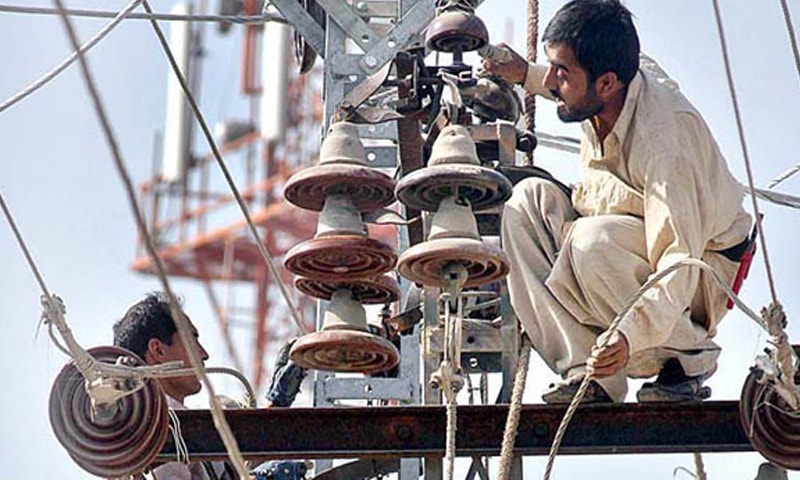ISLAMABAD: The government-owned distribution companies (Discos) are charging consumers double the fuel cost of electricity as advance billing and refunding only half of the overcharged amount on the regulator’s orders, thus earning a windfall revenue of more than Rs120 billion annually.
This was disclosed at a public hearing on Wednesday when the National Electric Power Regulatory Authority (Nepra) ordered the state-run Discos to refund Rs20bn to consumers at the rate of Rs1.71 per unit for overcharging them in July. The refund would be adjusted in the upcoming billing month.
While concluding an otherwise brief hearing, Nepra Vice Chairman Saifullah Chattha asked the Central Power Purchasing Agency (CPPA) and National Transmission and Despatch Company (NTDC) how much of the refund would actually flow down to the consumers after taking into account smaller consumers who did not get the fuel cost relief under the government policy.
The team of CPPA and NTDC comprising Muhammad Rehan and Mohammad Ilyas said it would depend on consumer data of Discos and might vary from month to month.
A case officer of Nepra reported that the share of revenue flowing to consumers and retained by power companies stood on average at fifty-fifty. He said savings of Rs17.6bn were because of lower-than-estimated oil prices and those of Rs2.3bn were due to better gas availability.
State-run distribution companies ordered to refund Rs20bn for July
Another official explained that about 67-70 per cent of consumers belonged to the segment consuming less than 300 units per month.
Under the practice in vogue, Discos are charging significantly higher estimated fuel cost to power consumers. The estimated cost is later adjusted against the actual cost in a subsequent month with the approval of the power regulator. The practice helps power companies generate billions of rupees from consumers in advance and have better cash flows without financing costs.
The relief in electricity rates will not be applicable to agricultural consumers and residential users with less than 300 units of monthly consumption under a decision by the PML-N government. The rationale for this decision was that these categories were already being provided with subsidised electricity.
The hydropower sector was originally estimated to contribute 41pc share, followed by furnace oil-based generation contributing 34pc. The share of hydropower stood at 30pc and that of furnace oil at 26pc, which was compensated by higher generation by nuclear, coal, re-gasified liquefied natural gas (RLNG) sources.
The CPPA reported that the regulator had previously approved the reference tariff of Rs6.49 per unit for July, but the actual fuel cost turned out to be Rs4.78 per unit. Therefore, there was a legal requirement to return Rs1.71 per unit to consumers.
The petitioner said about 11,496 gigawatt hours (GWh) were generated in July and 12,267Gwh were delivered to Discos due to about 1.73pc system losses.
It said the cheapest source of hydropower production had a 30.8pc share and was slightly 0.3pc better than last month. Hydropower has zero fuel cost. Also, wind and solar plants together contributed about 2.3pc energy at no fuel cost.
Power generation from furnace oil-based power plants amounted to 25.6pc against 22.34pc in the previous month. Because of higher production and lower oil prices, the per-unit cost of furnace oil-based plants slightly came down to Rs9.36 per unit in July against Rs9.5 per unit in June.
Likewise, natural gas-based generation stood at 17.17pc in July at a cost of Rs4.36 per unit while liquefied natural gas (LNG) contributed 12.12pc share at a rate of Rs7.52 per unit.
Generation from coal-based plants was down in July at 2.95pc in overall supply at a cost of Rs4.3 per unit. Most expensive generation came from high-speed diesel at Rs14.04 per unit with a higher contribution of 2.7pc in July mainly because of lower generation from Mangla Dam and, hence, most expensive gas-based plants of Saif, Sapphire, Orient and Halmore ran on diesel to meet power demand in Lahore.
The CPPA said energy was generated at a total cost of Rs58.65bn or Rs4.69 per unit while 1.73pc lower supply was delivered to Discos at a cost of Rs58.69bn or Rs4.78 per unit.
Published in Dawn, August 24th, 2017












































